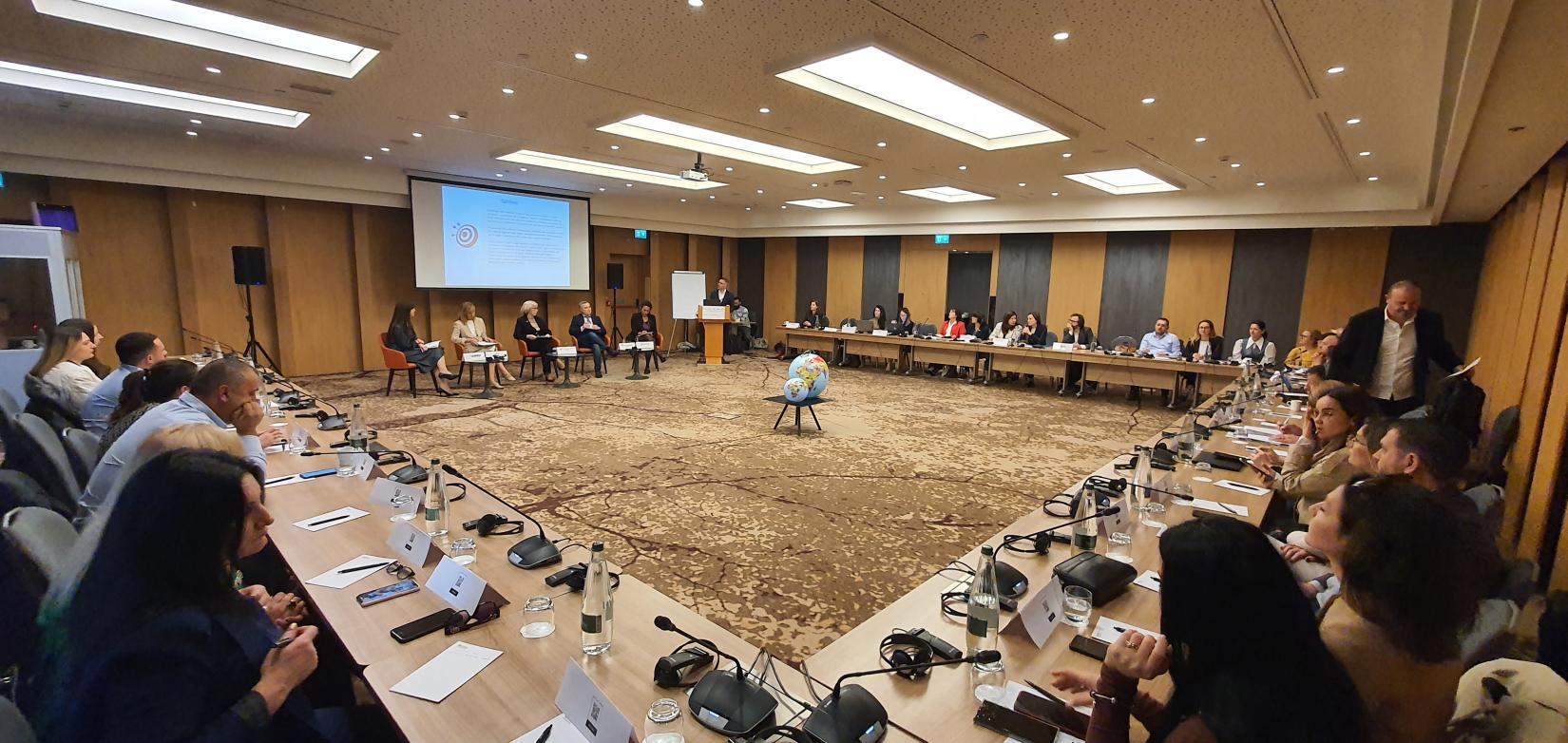Addressing data gaps will help Albania improve access to water and sanitation for vulnerable and marginalized communities
03 April 2024
News from UNECE
Guaranteeing safe access to drinking water and sanitation remains a challenge in the pan-European region, with 16 million people still lacking access to basic drinking water services and over 29 million people not having access to basic sanitation, including hundreds of thousands who have to practice open defecation. The Summary Progress Report on SDG 6 – water and sanitation for all – hence, calls for countries to quadruple the rate of progress to achieve the targets. At the current rate, countries will only achieve safe water and sanitation for all by the 22nd century.
Albania, under the leadership of the Water Resources Management Agency (AMBU) and the Ministry of Health and Social Protection and with the support of UNECE, has thus initiated a comprehensive assessment to create a baseline measure of equity to water and sanitation, applying the draft revised Equitable Access Score-card developed under the UNECE-WHO/Europe Protocol on Water and Health. This marks a significant step in the country’s efforts to ensure equitable access to safe drinking water and sanitation for all. Carrying out this self-assessment exercise was also one of Albania's commitments to the Water Action Agenda under the 2023 UN Water Conference.

Lack of data on vulnerable and marginalized communities remains a challenge
The preliminary findings of the self-assessment were presented and discussed with a broad range of stakeholders from government, municipalities, water and sanitation service providers, civil society organizations, and development partners at the Findings workshop on equitable access to water and sanitation in Albania (Tirana, 27 March 2024), highlighting a data gap on vulnerable and marginalized communities and hence reflecting the overall pan-European trend.
Despite a comprehensive governance framework to ensure access to water and sanitation for all with strategies in place, various challenges remain, particularly concerning the affordability of water and sanitation services for the poorest part of the population, the effective application of national strategies at the local level; and the need for further institutional coordination and integrated approach to equity in access to water and sanitation.
Consequently, participants discussed potential solutions and recommendations to ensure equitable access to water and sanitation more effectively, through targeted outreach programmes to identify, assess, and address specific water needs of vulnerable and marginalized communities, including low-income households, rural populations, and minority groups. The workshop outcomes will feed into the finalization of the country report, which will be published on the Protocol's webpage.
Ms. Fiona McCluney, UN Resident Coordinator to Albania, emphasized the significance of the assessment, highlighting that its outcomes could be aligned to global and regional processes such as the 2030 Agenda for Sustainable Development and obligations arising from the EU Directives on water and sanitation, or the European Environment and Health process.
Self-assessment exercise lays the foundation for targeted measures
Ms. Gerta Lubonja, General Director of AMBU, highlighted that the Score-card assessment will guide Albania in implementing evidence-based policies and interventions to drive action on access to water and sanitation, particularly for marginalized and vulnerable communities.
Albania reaffirmed its commitment to the Protocol on Water and Health and its efforts to ensure equitable access to water and sanitation services for all its citizens, and to continued collaboration with international development partners to address challenges identified in an integrated way and achieve the shared goal of realizing the human rights to water and sanitation.
Under the Protocol, several guidance documents and practical tools have been developed to assist countries and other concerned stakeholders in driving action on the water, sanitation, hygiene, and health agenda, in line with global and regional processes such as the 2030 Agenda for Sustainable Development and the European Union Directives, particularly the Drinking Water Directive recast, which emphasizes the need to ensure safe access to water and sanitation for vulnerable and marginalized communities.








